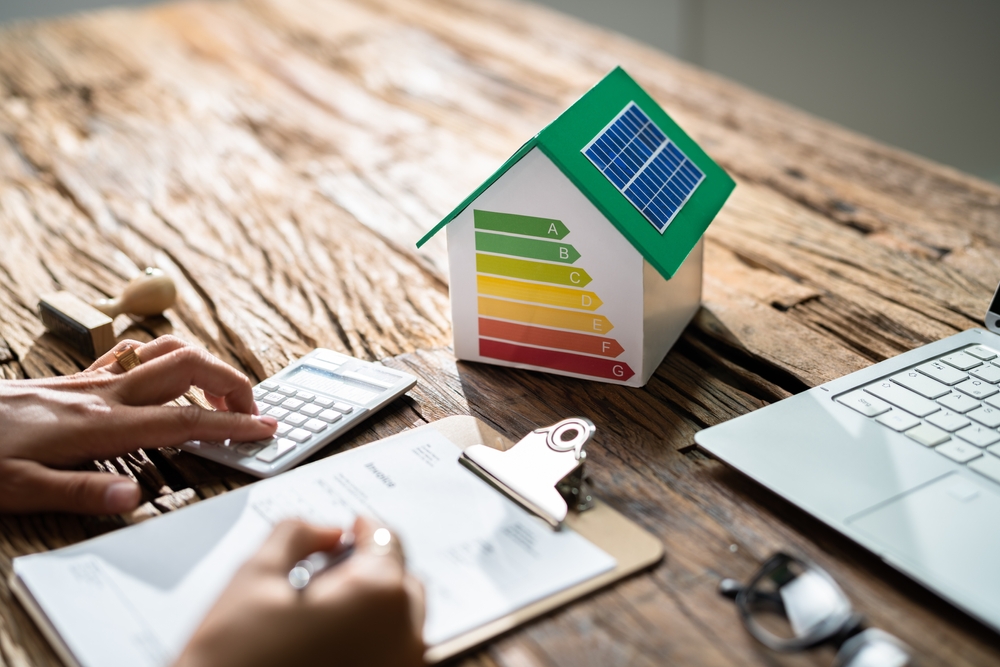
Domestic energy price in 2024: everything you need to know
The global economic and political scenario continues to leave its mark on energy costs, with direct repercussions on household bills. Let's analyse what is happening to understand the factors driving the increase in bills and how to cope with them.
Why are energy bills increasing in the UK?
The energy price between 2023 and 204 has seen further increases and is on average higher compared to previous periods.
The reasons behind the rising costs are different.
- Global energy prices. Fluctuations in global energy prices, including the cost of oil, gas, and coal, can impact energy bills in the UK. Changes in global supply and demand, geopolitical tensions, and disruptions in energy markets can all contribute to price increases.
- Wholesale energy costs. Energy suppliers in the UK purchase energy on the wholesale market, and changes in wholesale energy prices can directly affect the cost of supplying energy to consumers. Increases in wholesale energy costs are often passed on to consumers through higher energy bills.
- Network costs. The cost of maintaining and upgrading energy infrastructure, such as transmission and distribution networks, can also influence energy bills. Investments in infrastructure improvements, including upgrades to accommodate renewable energy sources and smart grid technologies, can lead to higher network costs that are passed on to consumers.
- Environmental policies. Government policies aimed at reducing carbon emissions and promoting renewable energy sources can impact energy bills. For example, subsidies for renewable energy projects and carbon pricing mechanisms can contribute to higher energy costs in the short term, although they may help to mitigate long-term environmental and economic risks associated with climate change.
- Taxes and levies. Taxes, levies, and other regulatory charges imposed by governments can add to the cost of energy bills. These charges may fund initiatives such as energy efficiency programs, renewable energy subsidies, or social support schemes for low-income households.
- Market competition and regulation. The structure of the energy market and levels of competition among energy suppliers can also influence energy prices. In some cases, market dynamics or regulatory decisions may contribute to price increases.
Overall, energy bill rises in the UK are often influenced by a combination of global market trends, regulatory policies, and domestic factors impacting the energy supply chain.
What is the Ofgem energy price cap?
The energy price cap, enforced by Ofgem (the Office of Gas and Electricity Markets), is a limit set on the maximum price that suppliers can charge for standard variable tariffs (SVTs) and default energy tariffs. It was introduced to protect consumers who have not switched energy tariffs and may be paying higher prices for their energy.
It covers 29 million households in England, Wales and Scotland. Energy bills are expected to fall by more than 12% from April since a new price cap has been announced by the body. Ofgem is in fact still responsible for deciding how much customers can be charged after the temporary Energy Price Guarantee, introduced by the Government after the conflict in Ukraine in 2022.
Ofgem reviews and updates the energy price cap twice a year, in April and October, to reflect changes in wholesale energy costs. The cap is designed to ensure that consumers on default tariffs pay a fair price for their energy, based on the costs incurred by energy suppliers.
The introduction of the energy price cap aimed to increase transparency in the energy market and provide greater protection for vulnerable consumers. However, it is important to note that the price cap does not apply to fixed-term energy tariffs or tariffs offered by smaller suppliers.

How to save on electricity bills?
The question of how to save on household bills remains more relevant than ever. When it comes to electricity, there are some simple solutions that involve both good habits and technological innovations already present in many commonly used devices.
- Leaving the lights on in a room that is not in use is one of the sources of energy waste that leaves a mark on end-of-month bills. It may seem trivial, but it is one of the most common bad habits. It is advisable to prefer LED bulbs over traditional ones, as they allow for reduced consumption.
- Comparing prices and offers from different providers allows you to evaluate any single-rate contracts with a flat rate for all hours.
- Both the washing machine and the dishwasher should be operated at full load, optimising their functionality with the power used for washing.
The optimization of consumption and savings is even more concrete with home automation systems that allow for immediate and remote management of tools in the house.

What is the best way to manage heating bills?
What applies to electricity savings also applies to heating and gas bills. Conscious use pays off with a less hefty bill, and home automation is always there to help cultivate good habits.
Equipping yourself with a smart thermostat or intelligent thermostatic valves is a guarantee of savings.
- A smart thermostat offers various features to keep control of the temperature in home environments, improving the energy efficiency of the boiler and radiators.
- The Multi-zone mode allows for setting and managing different temperature levels in various rooms, depending on their usage and the time of day.
- Precise measurement is accompanied by comprehensive monitoring of air quality to ensure a healthy environment.
The effectiveness of these features is enhanced by the application of smart thermostatic valves.
They simplify heating management based on daily habits and occupants' schedules and, thanks to the sensors they are equipped with, automatically stop the heat supply from radiators if open windows are detected nearby. All of this helps to contain heat loss and reduce average household consumption.
Other Articles

Smart Thermostat
The Smart Thermostat allows you to precisely set and measure the temperature of the room in which it is installed. Thanks to its advanced functionalities it also allows you to control humidity and air quality.

Smart Valve
With IRSAP NOW Smart Valves you control the temperature intelligently from wherever and whenver you want via smartphone. Our wireless thermostatic valves are compatible with all radiator brands and leading hydraulic valve manufacturers.






